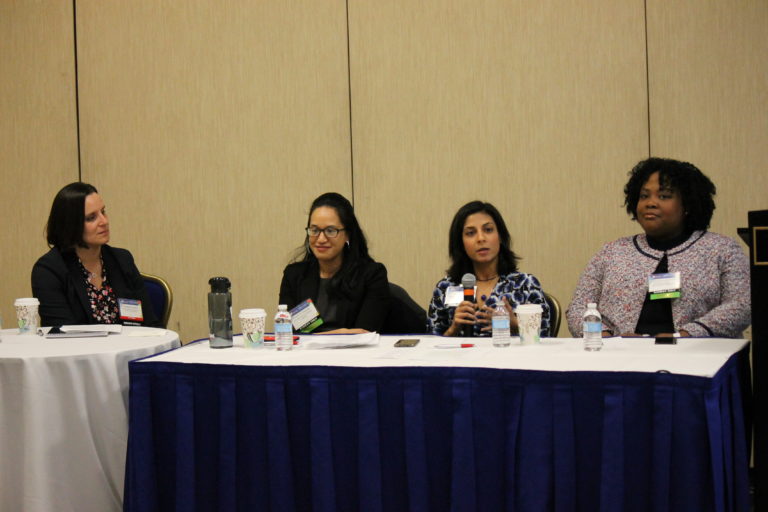
Lately, I have felt an electricity pulsing through the rooms where engineers and scientists gather to discuss our role in society. We are rethinking our responsibilities as citizens of our communities and inhabitants of our planet. Two weeks ago, I had the pleasure to participate in and contribute to this conversation while attending the 2019 Annual Meeting of the American Association for the Advancement of Science. I spoke on a panel entitled Influencing Policy: Opportunities for Scientists and Engineers.
During my conversations with engineers and scientists from all career stages, I was struck by how policy engagement continues to be positioned as an “alternative path” to a career in STEM. Or, it is viewed as something that only senior or retired scientists can dedicate their time toward. As a community, we struggle to reconcile our role as STEM practitioners with our responsibilities as citizens of our local communities. There are a few exceptions to this, most notably the Congressional Visits Days sponsored by many professional societies and aimed at educating legislators about the importance of federally-funded research. Still, by-and-large, young scientists and engineers feel they must choose between a technical career track or a policy career track.
One of the reasons I founded Engineers & Scientists Acting Locally is to offer a counterpoint to this perceived dichotomy. As we’ve learned from talking to many engineers and scientists, engaging with your local government offers an avenue for making substantive policy impact while pursuing a technical career. While serving on a municipal commission, you can tackle issues ranging from climate change to homelessness. In doing so, you help implement the critical “last mile” needed to make policy ideas a reality.
I would go so far as to argue that not only is it possible to balance a STEM career with policy engagement, it is our responsibility to do so. Today’s local governments face unprecedented technical challenges, from regulating autonomous vehicles to responsibly digitizing government functions to growing sustainably and resiliently. As engineers and scientists we bring a critical, and necessary, perspective to these policy discussions. And it is incumbent on us, as members of our local communities, to do so.
We frequently talk about creating opportunities for “citizen scientists” to contribute to research. I suggest that we need to consider the opposite as well: How should we contribute to the policy discussions that touch all of our lives? How can we become better “scientist citizens”?